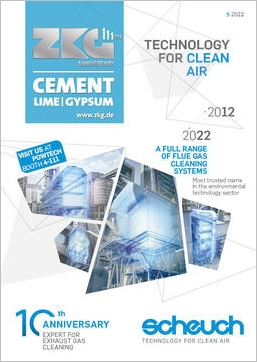N1 and Holcim jointly shape the future of the circular economy
The future of the construction and recycling industry depends on digital networking, data transparency and end-to-end processes. To strengthen these areas of expertise, Holcim is now participating in N1. The German green tech company has been leading the way with innovative digital solutions for the construction industry for years.
A circular economy in construction not only makes it possible to sustainably reduce resource consumption and the carbon footprint, but also to address the waste problem. This is because many building materials can be reused. Identifying potential materials for re- and upcycling and making them regionally available for the construction industry and plannable in calculations is something no system has been able to do so far. The Site Depot software from N1 was developed precisely for this purpose.
Site Depot offers companies in the construction industry a digital solution to organise material flows to and from construction sites in a sustainable manner and thus to be able to recycle and reuse them in a targeted manner. Site Depot is thus the first software on the market that enables the procurement, disposal and optimised reuse of primary and secondary raw materials.
“Using resources more efficiently and sparingly in construction is one of the biggest challenges facing the industry,” says N1 founder and CEO Christian Landes. To achieve this, his company relies on artificial intelligence (AI) and was awarded a prize for it last year at the Baden-Württemberg Innovation Competition for the automatic analysis of service specifications. “Rethinking processes and developing radical new solutions using AI saves construction companies a lot of time and money,” says Christian Landes, “and protects the environment.”
N1 solutions already break down in the planning phase of construction projects which building materials are needed, which are produced and which can be recycled elsewhere. Instead of using more and more new and finite resources, the software finds the material for reuse and upcycling, reduces the need for landfill space and optimises logistics.
Internally, material flows in the (construction) company can be optimised in a first step and surplus recyclables can be offered externally in a second step. In the future, this will also be easily done in interaction with the ORIS materials platform, which was developed by Holcim but now operates independently on the market.
Both points, as well as the high level of expertise in digital networking and software development, make N1 an interesting strategic partner. That is why Holcim is taking a stake in N1 Trading GmbH. “The cooperation with Holcim will move Site Depot forward even faster,” Christian Landes is certain. “The fact that a leading company in the industry is coming on board is another strong signal for us that we are on the right track.”
This assessment is also shared by Holcim, which is expanding its competences in the field of circular economy and digitalisation. “The raw material source of the future is no longer just the gravel pit or the quarry, but it is recycled material,” says Tilo Hahn, Head of Aggregates Holcim Germany. And Maximilian Kieser, Head of Digitalisation, adds: “Managing the material flows of the future digitally will be an elementarily important building block for Holcim to achieve its ambitious goals in the area of the circular economy. We are convinced by Site Depot and look forward to the joint further development of digital solutions for the construction industry.”






